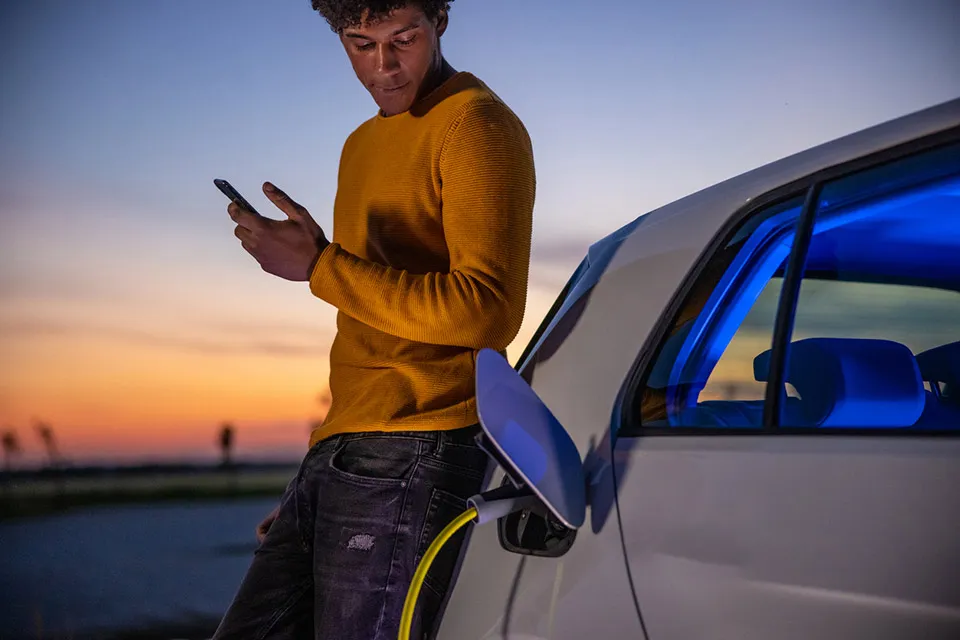Are Electric Cars Worth It?

Drivers considering switching to an electric vehicle do it for many reasons, but the most common may be to save money. Lower fuel costs, less maintenance, and enticing EV tax credits make them seem like a brilliant financial choice. But are these cost reductions substantial enough to make buying an EV worth it?
Cost Of Owning an Electric Vehicle
Overall, one can argue that EVs cost less to own when compared to internal combustion engine vehicles. But, of course, that only applies after you pay the initial cost for the car itself. Depending on the brand or manufacturer, an EV can cost you thousands (or tens of thousands) more than a cheap gas car. Highly sought-after brands like Tesla can also be challenging to find at a discount, with used cars holding on to their value for years after their initial sale.
But once you get past the sticker price, EVs become very affordable over time. So why are electric cars better? This question can have several reasons:
- Lower Fuel Costs: While an internal combustion engine vehicle will require costly tanks and struggle with its fuel economy, EVs operate off of cost-efficient electricity. The U.S. Department of Energy estimates that the average light-duty all-electric vehicle can exceed 130 MPGe or miles per gallon of gas equivalent. Hybrid electric vehicles, or HEVs, also have better fuel economy when compared to their gas-guzzling counterparts. Overall, you will almost always spend more on gas to fill up an internal combustion engine (ICE) vehicle than you ever would on the electricity required to charge your EVs battery. While the exact cost varies based on your vehicle model and battery capacity, the average driver can expect to pay around $6 each time they fill their battery up to 100%.
- Less Maintenance: Another disadvantage of ICE vehicles is the significant maintenance they require due to their numerous operational components. An internal combustion engine is a complex piece of hardware, requiring many moving parts working in tandem to propel the car forward. On the other hand, electric vehicles don't need the oil, gaskets, and valves that make engine repairs so expensive. Fewer parts mean less regular maintenance, reducing costs and making vehicle ownership far simpler to handle.
- Tax Credits: With the amendments put in place by the Inflation Reduction Act of 2022, the Qualified Plug-in Electric Drive Motor Vehicle Credit (also known as the Clean Vehicle Credit) offers a great way to save money with an EV. Depending on the model and manufacturer of your electric vehicle and the location of its final assembly, you may qualify for a significant tax credit. This tax credit can be worth up to $7,500, though it is nonrefundable, which means you would have to pay that much in taxes in a single year to get the full benefit. You'll also need to determine whether your vehicle had its final assembly in North America, which can often be determined with a VIN decoder.
Cons Of Electric Cars?

Although owning an EV can offer you significant savings, they're not without drawbacks. Some of these downsides include the following:
- Limited Charging Stations: One downside to owning an EV is finding a charging station during long trips. Depending on which state you drive, there may be limited infrastructure to support electric vehicles. That means that charging stations will be few and far between, and if your car doesn't have a long range, you could find yourself stranded. While some states, like Colorado, California, Delaware, New Jersey, Oregon, and Washington, have an excellent infrastructure to support EVs, others have a long way to catch up. Check the availability of charging stations in your area, especially if you intend to use your vehicle for work or a commute.
- Significant Charging Times: Once you find a charging station, you'll encounter a different problem: charge times. The lowest level of chargers can take well over 24 hours to fill up your battery, and even a level two will require your vehicle to be plugged in overnight. The fastest chargers, like level 3 stations, can significantly cut down your charge time, but you are still looking at a minimum of 30 minutes to fill your battery up. This is a far cry from the few minutes an ICE vehicle takes to fuel up, and that long charge time can be frustrating if you are in a hurry.
- Higher Start-up Costs: While an EV can save you money over time with lower fuel costs and reduced maintenance requirements, there is still that initial price tag. Of course, how much you pay depends on whether your vehicle is new and what manufacturer you go through. But on average, you're looking at spending at least a few thousand extras for an electric car.
- Expensive Battery Replacements: Yes, EVs require less maintenance, and with fewer moving parts to replace, they won't spend as much time at the auto shop. But one major repair you may have to contend with at some point is a battery replacement. Granted, you don't have to worry about this too soon after purchase, as some batteries can last anywhere from 15 to 20 years. But once the time for a replacement comes, you could be looking at thousands of dollars in repair bills.
Should I Buy an Electric Car?
So the big question is, "Are Evs Worth It?" The answer will depend on personal preference and several financial factors. First, you'll need to ensure your budget can handle the high initial startup costs and the possible costs associated with installing an at-home charger. You should also check whether a vehicle qualifies for an EV tax credit and carefully research any vehicle you are considering for purchase. You can do this with tools like VIN decoders and vehicle history reports, giving you numerous vital details about any available vehicle. These tools will not only help you get a better deal but also help you avoid common car-buying scams.
FREE Vehicle Search
- Accidents
- Problem Checks
- Title Records
- Recalls
- Values
- Specs
-
InfoPay, Inc. (dba GoodCar) is an Approved NMVTIS Data Provider
-
-























